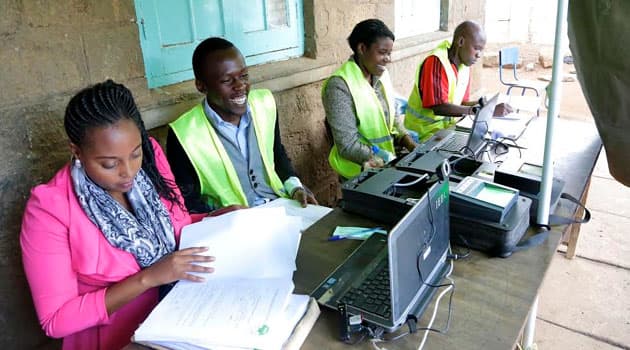We're loading the full news article for you. This includes the article content, images, author information, and related articles.
Nairobi County has recorded the highest number of new voter registrations since the Independent Electoral and Boundaries Commission (IEBC) resumed its Continuous Voter Registration (CVR) exercise.

Nairobi County has emerged as the frontrunner in new voter registrations, with 1,597 individuals added to the roll since the Independent Electoral and Boundaries Commission (IEBC) relaunched its Continuous Voter Registration (CVR) exercise on Monday, September 29, 2025. Data released by the IEBC on Friday, October 3, 2025, indicates that Mombasa followed with 556 new registrants by October 2, 2025.
Conversely, Lamu County recorded only one new registration, while Samburu County registered 18 new voters during the same period. Nationally, the CVR exercise has seen 7,048 new voters enrolled, with 259 voters successfully transferring their registration to new electoral areas and eight updating their personal details.
The IEBC recommenced the CVR exercise as part of its constitutional duty to ensure every eligible Kenyan has the opportunity to register and participate in democratic elections. The commission aims to register 6.3 million new voters, with a significant focus on young people who have recently attained 18 years of age. This drive is a crucial step in preparing for the 2027 General Election.
Eligible Kenyans can register at any IEBC Constituency Office, except in areas where by-elections are scheduled. Services offered include new voter registration, transfer of voter registration, correction or update of voter details, and inspection of voter registration status.
The voter registration process requires individuals to be Kenyan citizens, 18 years or older, and possess a valid National Identity Card (ID) or a valid Kenyan Passport. The process involves the capture of both biographic information and biometric identifiers. Notably, the IEBC has incorporated iris recognition as an additional biometric feature in this round of registration. This enhancement aims to provide an alternative means of voter identification if fingerprint recognition fails and is permissible under the Elections Act.
The IEBC has reiterated its commitment to strict compliance with the Data Protection Act, 2019, ensuring all collected data is securely stored and accessed only by authorised officers for legally prescribed purposes.
Political analysts suggest that the ongoing registration could significantly influence future public debate and policy implementation. However, the exercise has faced a slow start in some areas, with concerns raised by the public, particularly youth, regarding data privacy due to the introduction of iris scanning technology. Despite these concerns, the IEBC remains optimistic that turnout will improve.
The slow initial turnout, particularly among the youth, poses a risk to the IEBC's target of registering 6.3 million new voters. Concerns about data privacy related to iris scanning technology could further deter potential registrants. If these issues are not adequately addressed, it could impact the inclusivity and representativeness of the voter register for the 2027 elections.
Observers will be closely watching the IEBC's strategies to address public concerns regarding data privacy and to boost voter turnout, especially among the youth. The commission's engagement with stakeholders and its efforts to clarify the security of biometric data will be critical in the coming weeks and months.
Keep the conversation in one place—threads here stay linked to the story and in the forums.
Sign in to start a discussion
Start a conversation about this story and keep it linked here.
Other hot threads
E-sports and Gaming Community in Kenya
Active 9 months ago
The Role of Technology in Modern Agriculture (AgriTech)
Active 9 months ago
Popular Recreational Activities Across Counties
Active 9 months ago
Investing in Youth Sports Development Programs
Active 9 months ago